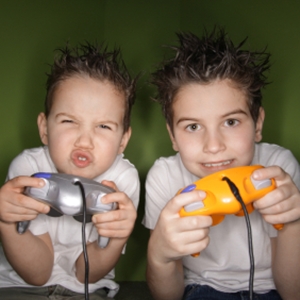
Having grown up with gadgets galore, young parents aren't as worried about the potentially corrosive effects of too much screen time on their offspring, a new study suggests.
Surveying more than 2 300 parents of children up to age eight, researchers from Northwestern University found that the vast majority - 78% - report that their children's media use is not a source of family conflict, and 59% said they aren't concerned their kids will become addicted to new media.
"We asked parents what their challenges were as the parents of young children and sometimes media was never mentioned," said study author Ellen Wartella, director of Northwestern's Center on Media and Human Development. "Parents of children this age are concerned about their health, safety, nutrition and exercise, and media concerns are much lower down the list. That was a surprise."
How the study was done
Wartella and her team identified three different types of media environments parents create: media-centric (39% of families), media-moderate (45%) and media-light (16%). In media-centric homes, children spend three hours more each day with screen media such as TVs, computers and tablets than those in media-light households.
The notion that parents are apt to shush their kids by handing them a smartphone or tablet also appears to be false, according to results. To keep their children quietly occupied, moms and dads said they were more apt to turn to toys or activities (88%), books (79%) or TV (78%). Of parents with smartphones or iPads, only 37% reported being somewhat or very likely to turn to those devices.
"Given all I've seen in the popular press, the newfangled technologies of smartphones and tablets would be the go-to tools but we didn't find that," said Wartella, also a professor of psychology and of human development and social policy. In fact, when they were in a restaurant or the car and they needed to calm a child, parents reported they were more likely to turn to the tried-and-true, such as soft, plush toys and colouring books.
"What's compelling is we certainly have a generation of parents now who grew up with technology, and it's very much a part of everyday life for these families," she added. "There are different styles of use, and parenting styles set the agenda and help influence children's styles."
Still benefits?
What is concerning to parents, according to the survey, was the negative impact screen time has on kids' physical activity levels. More than 60% said video games result in less movement by their children, with similar proportions saying the same about TV, computers and mobile devices.
Dr Roya Samuels, a paediatrician at Steven and Alexandra Cohen Children's Medical Center of New York, in New Hyde Park, said paediatricians as a whole worry about the stationary nature of media use, which is reflected in exploding childhood obesity rates.
"The main contributing factor is the rise of technology, and children are spending a good amount of time behind screens instead of outdoors playing or indoors just moving around," Samuels said. "Another thing that ties into this is that it's really important for children to be active learners, not passive learners, and a lot of this screen time is really not an active way of engaging in their own education."
But, given the potential pitfalls, media use still offers many "wonderful benefits" to children, Samuels added, though it shouldn't encroach on one-on-one parenting time.
"It's much more difficult for parents to find the quiet moments to pass on life lessons and share quality time with their kids," she said. "Everywhere they turn, there's a tablet, a computer, an iPhone or a handheld device luring them away from what used to be the main arena where children would learn lessons in the family home."
More information
The US National Library of Medicine offers more on children and screen time.




 Publications
Publications
 Partners
Partners










